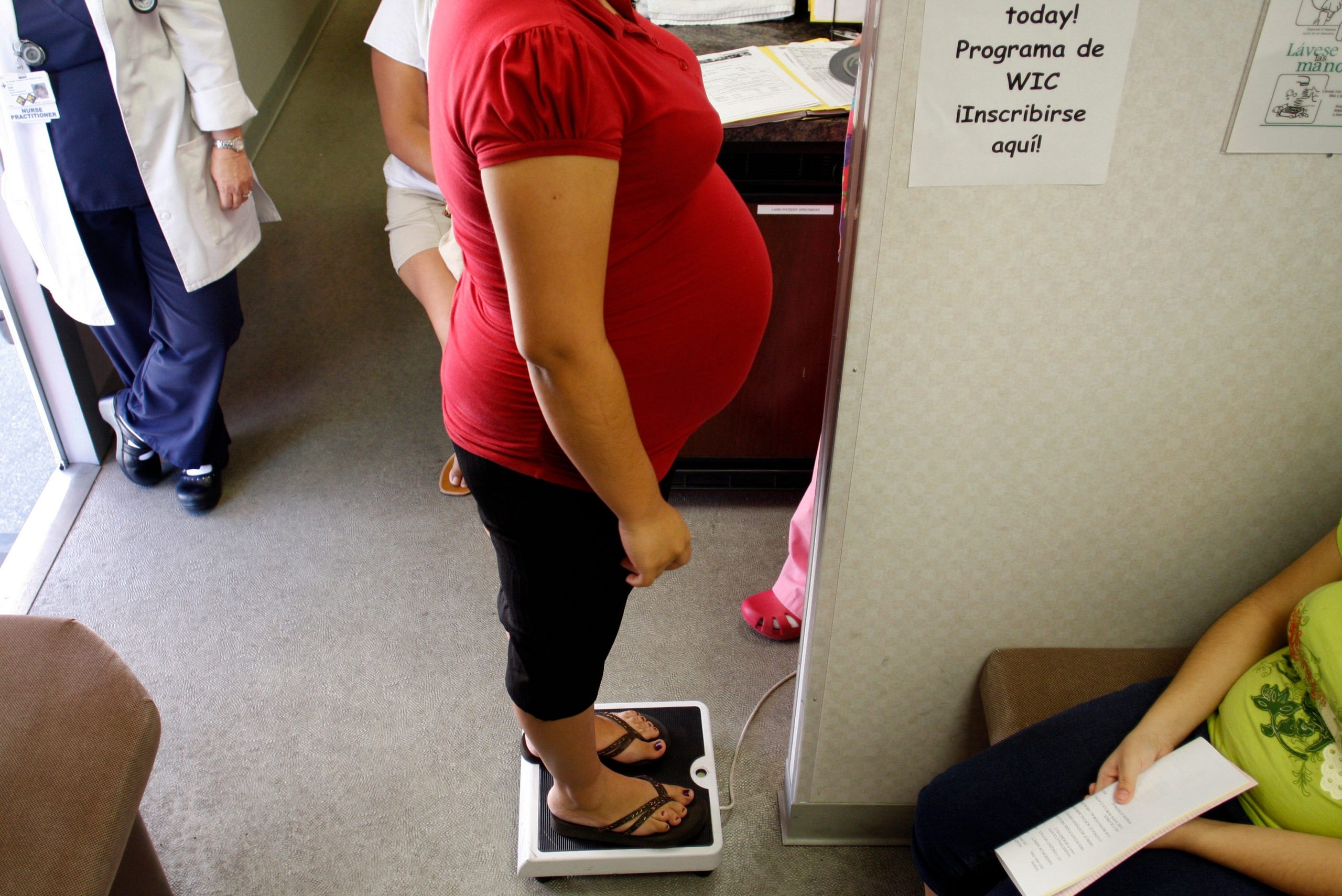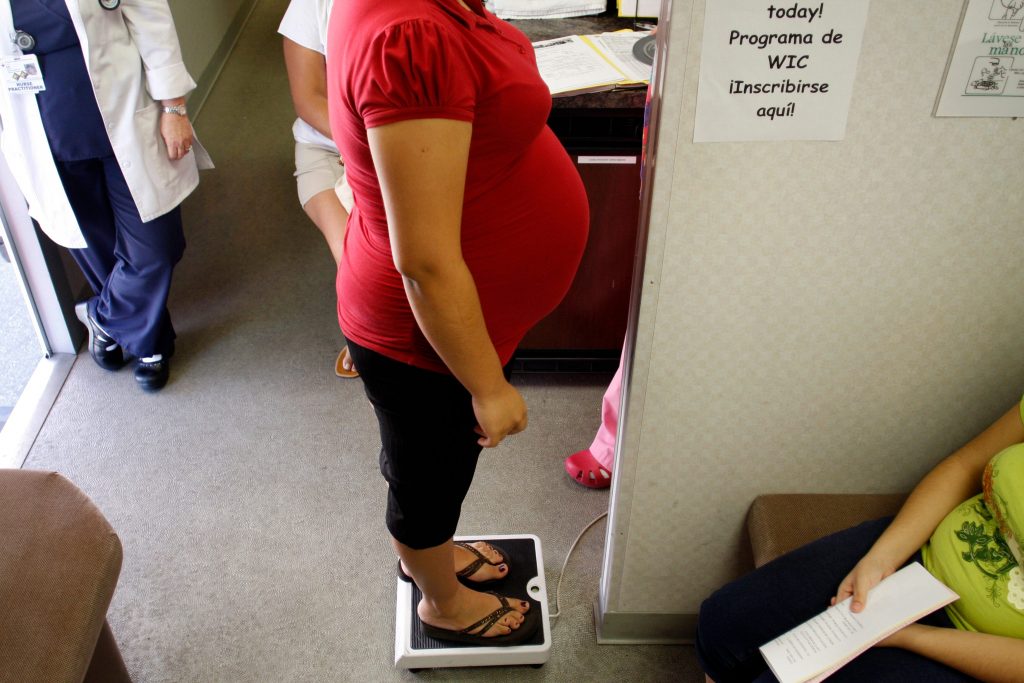
Reuters
- Cultural messaging and a loss of control can prompt body image concerns during pregnancy.
- Support, education, and managing expectations are key. Practice intuitive eating and movement.
- Pregnant with questions? Submit your question to Anna anonymously here for nonjudgmental answers.
- Visit Insider's homepage for more stories.
Dear Anna,
I'm pregnant and the weight gain is freaking me out. I've only put on a few pounds so far, on track with recommendations, but I know my belly will only get rounder and the number on the scale will only go up.
I know it's a shallow concern, but I've worked hard over the years to get (and stay) in shape, and letting that go isn't easy. I find myself tempted to exercise more and eat less – and then feel disappointed when I look at my softening body.
Logically, I know weight gain is important and healthy. But while I feel like I should feel appreciative of what my body is creating, I just feel kind of gross and resentful, and then guilty for feeling that way. Please help.
– Danni, Boulder
Dear Danni,
You're not shallow, you're someone who lives in a culture that demonizes weight gain and round bellies and celebrates weight loss and flat stomachs - no matter a person's actual health status. Decades of that messaging doesn't necessarily vanish the moment you find out your pregnant.
Plus, pregnancy can feel like your body is no longer yours, which can be an unsettling experience, especially if you're used to controlling what it looks and feels like through diet and exercise.
That is all to say: your feelings, though not often voiced, are completely understandable and pretty darn common, Jessica Byrd, a therapist in Arizona with advanced training in sexual and reproductive health, told me.
There's not much research on just how how prevalent it is, but one study showed that about a third of women experience body image dissatisfaction during the third and "fourth" trimester. Another found that 41% of moms felt more negative about their bodies after birth, while only 12% felt more positive.
That's troubling. Body dissatisfaction is linked with depression during pregnancy, which in turn can put you at risk for postpartum depression. More immediately, you simply don't want to feel so crappy for the next many months.
Don't aim for body love, try body trust or compassion
First, stop "should-ing."
Yes, it would be nice to feel nothing but admiration for what your body is doing rather than resentful, but the truth is you can feel both - and that's nothing to feel guilty about. "Having a difficult time with a the change your body is going through does not mean you're not appreciating what it's creating," Byrd said.
So while moving from feeling gross to feeling joyful might be unrealistic, you can allow room for more positive emotions by reframing.
Rather than asking yourself, "How can I love my body?" Byrd recommends asking yourself questions like, "How can I learn to trust my body during this process? How can I take care of my body even though I'm uncomfortable? How can I be compassionate instead of critical about the changes the body is going through?"
"Pregnancy may be a really uncomfortable process for you," she said, "but that doesn't mean you're doing it wrong." Cut out any influences, like Instagrammers basking in a pregnancy glow, that make you think otherwise.
Be honest with your support system, including your provider
Experiencing your feelings alone only amplifies them. Sharing them with a partner or close family and friends can lighten your emotional load, and allow you to start a discussion about how they can best support you. Can they eliminate appearance-related talk from conversations? How about asking them to watch out for times you may be restricting? Perhaps a friend you used to do HIIT workouts with will join you for lower-key strolls instead.
"It's making sure you have people around you that aren't reinforcing some of those pressures," Byrd said. "It's someone who can help you take care of your body even when you're uncomfortable with it."
Enlist your provider, too. They can make practical changes for how they care for you, like weighing you backwards if the number of the scale is triggering.
Other women's health specialists can be helpful here too - enlist the support of a doula, childbirth educator, therapist, dietitian, or all of the above. While some discomfort is to be expected, don't let it cloud everything else in your life or sabotage your and your baby's health.
"Recognize when you're feeling uncomfortable enough with the process of pregnancy that it's creating fear or overwhelming emotions that are getting in the way of your ability to be present," Byrd said. At that point, get professional help.
Get curious
While a lot of how your body is growing and changing is out of your control, it's not all unexpected. Women have been doing this for a long time! Digging into, rather than avoiding, the topic of pregnancy by taking classes and reading books can help you understand why your body is changing the way it is and prepare you for what to expect going forward.
As two therapists wrote for the National Eating Disorders Association website, "understanding what weight gain in pregnancy is and why it's happening can help you be more curious - and less judgmental - about the changes."
Other resources can specifically help you address body image concerns, which won't disappear (and may amplify) when you deliver. Check out "Does This Pregnancy Make Me Look Fat?" by former NEDA director Claire Mysko, join body-positive pregnancy support groups, or listen to podcasts by body image experts like Summer Innanen.
And finally, take this good opportunity to shift how you think about food and exercise: If you were eating and exercise for appearance-related reasons before, now you're free to eat in a way that nourishes and satisfies you and explore types of movement that just feel good. Becoming more intuitive about both diet and exercise isn't easy, but your future self - and kid - will thank you for starting that journey now.
Senior health reporter Anna Medaris Miller is here to answer all of your questions about pregnancy- especially the ones you don't want to bring to your doctor or even friends. As a journalist covering women's health for more than a decade, she'll mine the research, consult a range of experts, and give you the key takeaways. Submit your question anonymously to Anna here.

